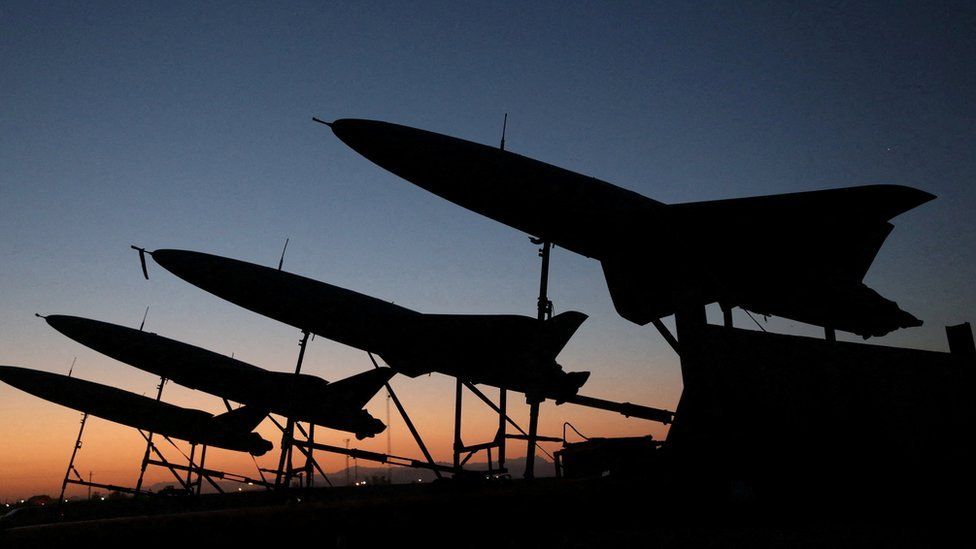-

-
-
Loading

Loading

The United Kingdom, France, and Germany have announced that they will maintain sanctions on Iran in order to prevent the country from selling drones and missiles to Russia. In 2015, Iran agreed to a nuclear deal which included the lifting of some sanctions. However, the European nations believe that Iran violated the deal by enriching and storing uranium. Iran has responded by calling the move "illegal and provocative." This is concerning because highly enriched uranium can be used to create a nuclear weapon. In response to Iran's actions, the European powers have decided to incorporate expiring United Nations sanctions into their own laws. These sanctions are meant to prevent Iran from developing and exporting ballistic missiles and drones. Unfortunately, despite the sanctions, many drones made in Iran have been used by Russia in its ongoing conflict with Ukraine. The nuclear deal, officially known as the Joint Comprehensive Plan of Action (JCPOA), was agreed upon by Iran and a group of world powers including the US, UK, France, China, Russia, and Germany eight years ago. Under the agreement, Iran agreed to limit its nuclear activities and allow for international inspections in exchange for the lifting of economic sanctions. The deal also included an asset freeze on individuals and organizations believed to be involved in advancing Iran's nuclear program. However, countries like Russia and China will no longer be bound by these restrictions if they do not adopt similar sanctions to those of the UK, France, and Germany by October 18. The three European countries have stated that the sanctions will remain in place until Iran is fully compliant with the nuclear deal. Iran has argued that this decision clearly violates the obligations of the E3 (UK, France, and Germany) under the JCPOA and UN Security Council Resolution 2231, which calls on Iran to refrain from activities related to ballistic missiles capable of carrying nuclear weapons. The E3, on the other hand, maintains that their decision is in line with the JCPOA as Iran has twice refused opportunities to return to the agreement and has continued to expand its nuclear program beyond the limitations of the JCPOA. It is important to note that the United States unilaterally withdrew from the JCPOA in 2018 under President Donald Trump.